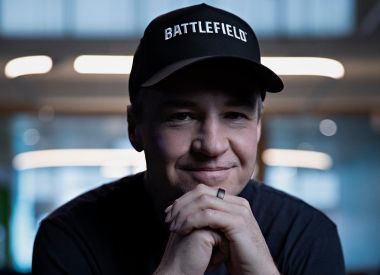Bloxels isn’t the first retail product designed to make game development more-approachable to younger audiences. But the upcoming tablet-game-slash-dev-tool from Pixel Press might be just the thing to get the creative juices flowing in the minds of a generation raised on smartphones and tablets.
We spoke with Robin Rath, co-founder and CEO of Pixel Press, about the company’s ongoing Kickstarter campaign and Pixel Press’ overall vision for Bloxels. As anyone familiar with the studio’s previous work (Floors and Adventure Time: Game Wizard) will attest, Pixel Press is more than capable of giving fans the tools they need to create small-scale video game content. But now the studio wants to go one step farther with Bloxels; a product that is equal parts development suite and spiritual successor to Lite Brite.
“Floors let you draw your own video game, but we wanted to open it up even further, making it so simple anyone could do it,” Rath told iDigitalTimes. “Bloxels was the next step.”
Bloxels is a beginner’s toolkit to help novice creators understand (and engage in) various aspects of the game design process. And its premise is simple. Using a variety of colored blocks, Bloxels users can create individual panels from a video game, which can then be stitched together into a two-dimensional game world that should instantly feel familiar to those who grew up in the 8- and/or 16-bit eras.
Each block represents a certain design element, with everything from enemy creatures to walls and obstacles placed directly by a Bloxels user. After arranging the blocks on the Bloxels grid, the user snaps a photo of the arrangement with their tablet or smartphone (via the Bloxels app) and waits for the program to recreate the your grid in the Bloxels engine.
Once all the basic building blocks are in place, users can tinker with the levels they’ve designed or even stitch together multiple panels’ worth of content to create an extended Bloxels experience. The current maximum is 30 panels but Rath says that cap could be increased if users want/need it. The Pixel Press CEO didn’t offer a specific length of time, for how long a 30-panel game might take to complete, but Rath did told iDigitalTimes that projects hitting the cap will probably be longer than you’d expect.
Pixel Press has already conducted several play tests, with children of all ages, and found that those eight-plus years old respond well to the basic Bloxels concept. Should the idea take off, Pixel Press is hoping to see its latest idea show up in classrooms and other educational environments where young people might display an early interest in game design.
“We certainly do and have already gained considerable interest in [Bloxels’ educational applications],” Rath said. “Teachers can use Bloxels for opportunities to teach critical problem solving, iterative thinking, collaboration and team work, and of course game design.”
Of course, students are the only ones who might be interested in learning how to create their own video games. Those who’ve long considered pursuing a career in the industry could certainly use Bloxels to familiarize themselves with the basic principles of game design. And the ability to share creations with other Bloxels users encourages users to spend time fine-tuning various aspects of their games.
Sadly, even those who manage to create projects worth sharing with the Internet at large won’t be able to export their Bloxels creations and/or profit from the games they’ve created. While more advanced toolkits, like GameMaker or RPG Maker, have long given consumers the opportunity to monetize their creations, Bloxels is currently being looked at as more of an educational tool than a commercial one. But, for those who believe monetization always increases the appeal of such tools, all hope is not lost.
“We've talked about making that possible in the future,” Rath said. “As we continue to expand on the tool and allow creators to have more control, we'll start to explore the idea of publishing your own games.”
For now, the Bloxels team is focused on finding ways to let users combine different toolsets to create new and interesting content for their games. The team has already confirmed their desire to build more Bloxels add-ons, like a 3D modeler or animation studio, and eventually the Bloxels team is hoping the various pieces to improve one another. After all, why would anyone want to use preexisting artwork when they could build their own sprites (complete with custom animations) via Bloxels applications?
But before the new tools are released, Pixel Press must complete work on B.R.A.V.E. Squad; the single-player action game that will be released alongside Bloxels when the base set ships this October. The game will include multiple enemies, three bosses and three heroes (each with unique weapons and skills) that can be upgraded over the course of the game. Rath says Pixel Press also hopes to release new B.R.A.V.E. Squad bosses and heroes on a semi-monthly basis after launch.
Despite the success they’ve found on Kickstarter, Rath says Pixel Press remains incredibly humble in its desires for the growth of Bloxels. While seeing Bloxels on the shelves of a toy store or two would put a smile on the faces of the Bloxels team, ensuring their latest tool is available to interested educational groups remains a priority. And the team realizes they’re lucky to have even made it this far.
“We're always surprised by the outpour of support we receive other each time we share a new idea,” Rath told iDigi. “It's an even bigger deal on Kickstarter because people are putting their hard earned money behind their support as well.”
Those interested in Bloxels can still contribute to the toolset’s Kickstarter campaign, bringing it one step closer to funding its first round of stretch goals, until June 18. Those reading this story after the Bloxels campaign has come to an end will be happy to know Pixel Press hopes to have additional units available for purchase when Bloxels makes its official debut this October.

















